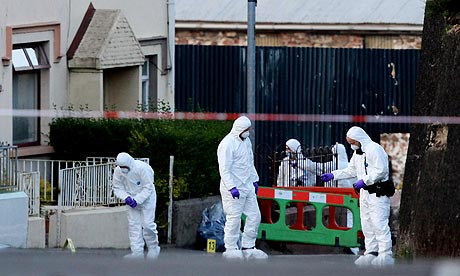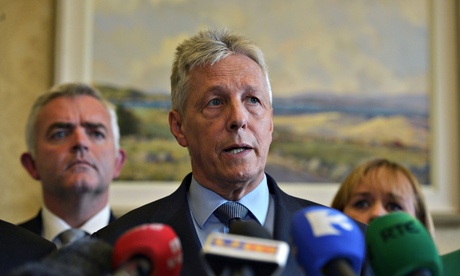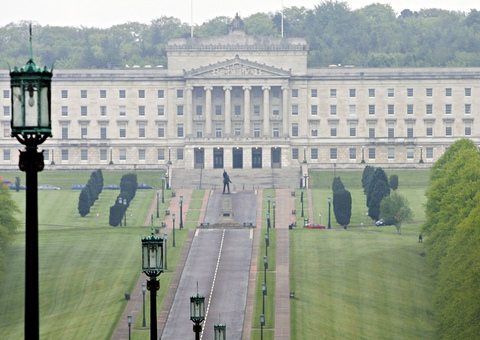A young man took me to a memorial for three people who had been murdered by loyalists in an estate in Lurgan. He was related to one of the victims. As he told me what had happened, it was clear that he was filled with anger and the desire for retribution. This young man supported Continuity IRA (CIRA) and was actively involved in rioting. The murders took place in 1991. The young man was 15. He never knew his relative. Yet his anger was fresh and drove his support for CIRA and his aggression on the streets.
CIRA is one of three dissident republican paramilitary organisations who continue to threaten the security of Northern Ireland through bombs and bullets. In recent weeks there have been several serious incidents in different parts of the province including Lurgan. The dissidents clearly wish to give the impression they can sustain military operations comparable to the Provisional IRA's (PIRA) campaign, which lasted for about 25 years.
Many people feel a sense of dread that Northern Ireland is slipping back into the "bad old days" after so much progress towards a peaceful society. The cloud of recession reinforces these anxieties. Will there be another generation of disaffected young men with little to lose from violence?
For nearly 30 years the fire of violence raged in the North of Ireland. The Good Friday agreement, the power-sharing government, the reform of the police and many other initiatives have doused the flames. Inevitably embers of resentment remain. Do the activities of the dissidents represent these dying embers or are they fanning the flames of a new conflagration?
To revitalise a struggle from embers requires the wind of an ongoing political aspiration and a steady supply of fuel. The Provisionals' campaign aspired to a united Ireland. That, as the dissidents relentlessly point out, has not been achieved. However, the practical aspiration that provided the PIRA with the support they needed was the struggle for equality and rights for Catholics.
These have largely been won, at least formally. The fuel that sustained the campaign was the threat of violent loyalist retaliation and the strategies used by the British state to repress the violence. Sectarian murders, the existence of a predominantly protestant police force and the presence of British troops on the streets and in the field of nationalist areas are powerful representations of oppression. These symbols are no longer available.
The dissidents lack a clear political strategy. They stress the co-option of Sinn Féin into the state that they refuse to recognise. They seize the opportunity of residents' protests against Orange marches as a symbol of protestant unionist triumphalism and sectarianism and an opportunity to generate media coverage of the brutal "SS RUC". Otherwise the only threats, from which they are protecting their communities, are drug dealers and young people involved in crime. They have revived the practice of inflicting severe physical punishments on teenagers.
Most nationalists do not see the annoyance of the marching season and the remarkable restraint of the police service as a righteous cause for more bloodshed and chaos. Consequently, I favour the dying embers metaphor. A small group of determined activists can cause a great deal of damage and grief. But I do not think they can destabilise the peace process and return Northern Ireland to the "bad old days".
These embers are the hurt, the grief and the trauma that thousands of people feel after 30 years of killing and injustice. The peace process has addressed political structures, human rights and legal reforms. It is at the level of the personal and the relational that much work needs to be done to relieve bitter feelings and to restore real respect and justice to the daily interactions of ordinary people. This work is being done but it will take years to complete.
What, then, of the young men that I met? They certainly share the dissidents' disillusionment with the politics of Sinn Féin. They clearly loathe the police and welcome any opportunity to riot against them. However, most young people feel disconnected from formal politics. Most young men in deprived working-class areas are in conflict with authority in general and the police in particular. The primary motivation to riot is not political. Young men enjoy the adrenalin rush and playing at being heroes. Most will grow out of this game and make positive contributions to Northern Irish society unless, of course, the recession prevents them.









